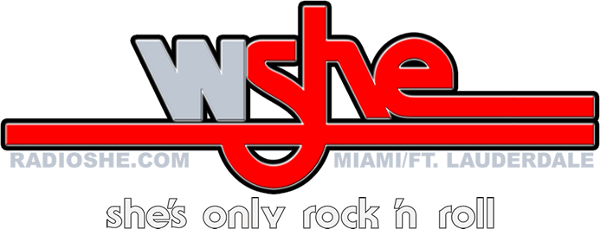
|
|


It's an interesting side note that John Phillips of the Mamas and Papas wrote the song "Creeque Alley" based on their experiences during that time, with the line "McGuinn & McGuire still gettin' higher". Phillips and McGuinn were both living at the Earl Hotel in Greenwich Village, where they had frequent jam sessions with other folk musicians on the scene. Barry McGuire would join them occasionally. McGuire later had a number one hit with "Eve of Destruction," while Phillips was still in New York, struggling to put the Mama's and Papa's together.
After changing their name to the Beefeaters, McGuinn, Clark and Crosby recorded an Elektra single called "Please Let Me Love You," which was not well received. By 1964 the group added bassist, Chris Hillman (who also played mandolin), and were in search of a drummer. Crosby and McGuinn were standing in front of the Troubadour when they spotted a man coming toward them who looked like a combination of two of the members of the Rolling Stones. Michael Clarke was hired on the spot for just looking the part. Clarke didn't know how to play the drums, but that didn't matter.
Crosby's friend, Jim Dickson, was a producer at World Pacific Studios. Dickson would let the trio record late every night on some old tape that wasn't good enough to use for a record but was fine for rehearsal. Chris Hillman was playing a cheap Japanese bass and Michael Clarke didn't have a drum kit, so he learned on a set of cardboard boxes with a tambourine taped to the top. The first practice recordings they made sounded very primitive. Dickson decided to get a $5000 loan so that the band could get some real instruments.
The band was having Thanksgiving dinner when they tried coming up with a new name for the band. Gene Clark offered "The Birdsies." Nobody liked that name and Dickson said, "How about the Birds"? "Birds" was slang in England for girls and the band didn't want to be called "the Girls." Then McGuinn came up with the B-Y-R-D-S spelling, and it stuck.
The group's first big break came when Jazz legend Miles Davis heard them and got them a contract with Columbia Records, contingent on the success of a single. Their second stroke of luck was when Jim Dickson remembered a Bob Dylan song that Dylan wasn't going to use on his next record because someone was singing out of tune on the track. The song was a folk style tune in 2/4 time with four verses. It ran about five minutes long. Dickson had the Byrds line up in front of the studio monitor and listen to "Mr. Tambourine Man."
Crosby said, "I don't like it man! It's too folksy with that 2/4 time and all those verses. Radio will never play a song like that!" David was right. Radio wanted what sounded like Beatles' songs and had a strict time limit of two minutes and thirty seconds for a single record. McGuinn had an idea for a new arrangement. He added a Bach-like intro on his Rickenbacker 12-string guitar and changed the time signature to 4/4 time like a Beatles' song. Then they all auditioned for the lead vocal part. First Gene sang it, then David and finally McGuinn.
Dickson liked the way McGuinn sounded on the lead and gave him the part. McGuinn also suggested that they use only one verse to cut down the overall length of the song. They picked the verse with "Boot heels wandering" because it reminded them of "Beat poet," Jack Kerouac.
The first session for "Mr. Tambourine Man" was too important to leave to the musical skills of this fledgling band. Terry Melcher, the producer (Doris Day's son) hired studio musicians to play the instrumental tracks for the song... Hal Blaine on drums, Larry Knechtel on Bass, Jerry Cole, and Bill Pitman on electric guitar and Leon Russell on electric piano. Jim McGuinn was the only Byrd allowed to play on the session, with his Rickenbacker electric 12-string.
"Mr. Tambourine Man" was recorded in the winter of 1965 at Columbia's studio "A," in Hollywood. The record sounded good, but Columbia wasn't sure when it should be released and the tape was held back for what seemed like an eternity. Then on June 5, 1965, "Mr. Tambourine Man" was released. By June 26, 1965 it had climbed to the number one spot on Billboard's Hot 100 chart.
After "Mr. Tambourine Man", the other members of the Byrds were allowed to record and the group released a full-length debut of the same name, containing a mix of original songs and more Dylan covers. The album became an instant classic with its jangly 12-string guitar, practically inventing folk-rock. Meanwhile critics proclaimed them "America's answer to the Beatles" and began hyping the group to no end. The Byrds' second No. 1 single, a cover of Pete Seeger's "Turn! Turn! Turn!," also became a 1966 album of the same name, and cemented their status as a band that was both artistically and musically successful.
The next Byrds' single, "Eight Miles High," explored a psychedelic sound, and shot to No. 14 despite being banned from most radio stations due to alleged drug references. "Eight Miles High" is actually the altitude that is reserved for military aircraft. After recording 1966's innovative "Fifth Dimension", songwriter Gene Clark left the band, largely because his fear of flying prevented the group from touring. He had witnessed a fatal airplane crash as a youth and had never gotten over it. He had a panic attack on a plane in L.A. bound for New York and had to get off. McGuinn told him, "You can't be a Byrd, Gene, if you can't fly."
Crosby and Hillman wrote most of the songs for 1967's "Younger Than Yesterday", which shifted the band's fan base from teenagers to a cult of older, more radical fans. While recording 1968's "The Notorious Byrd Brothers", David Crosby quit to join Crosby, Stills and Nash. A new Byrd's album featured more studio effects created by McGuinn and even a Moog synthesizer, the first use of synthesizers in rock music. Shortly after its release, drummer Mike Clarke left the band, leaving only McGuinn and Hillman. Jim McGuinn became increasingly interested in Eastern religions, and changed his name to Roger at the urging of an Indonesian guru, who claimed a name beginning with "R" would "resonate better with the universe."
Country singer/songwriter Gram Parsons joined the group and gave the band a new country edge. With new drummer Kevin Kelly, the Byrds released what is considered the first country-rock album, 1968's "Sweetheart of the Rodeo". The group began a tour of South Africa to support the album, but Parsons quit, refusing to play in the country due to its racial policies. Though the group was promised it would play before integrated audiences, it was booked into white-only clubs, prompting Hillman to quit in disgust and join Parsons to form the pioneering country-rock band, the Flying Burrito Brothers.
The only original member remaining in the group, McGuinn pressed on, bringing in guitarist Clarence White and bassist John York to record "Dr. Byrds and Mr. Hyde" and "Ballad of an Easy Rider", both released in 1969. The single "Jesus Is Just Alright" prompted the band to continue in its new line-up, and McGuinn brought the band back into the studio in 1970 to record songs for a new album called "Untitled", which also featured live material. After two ill-fated albums, 1971's "Byrdmaniax" and 1972's "Farther Along", CBS dropped the band and the Byrds formally broke up.
In 1973, David Crosby, having reached a high point of success with Crosby Stills and Nash, wanted to do a reunion album with the Byrds and convinced all the original members to join him on Asylum Records for the project. Crosby was upset because McGuinn was still using the name "Byrds", and David made McGuinn promise that he would not use the name "Byrds" without him.
Critics slammed the album as a poor imitation of the original band, and the group broke up again before a planned reunion tour. Roger McGuinn started a successful solo career, even collaborating with Gene Clark and Chris Hillman on two late '70s albums. Hillman too, became a solo acoustic performer, also working with the country group, the Desert Rose Band. Having overcome a serious drug problem, Crosby continued to tour with Crosby, Stills and Nash.
The Byrds reunited briefly to record four new songs for a 1990 boxed set, and were inducted into the Rock and Roll Hall of Fame the following year. Sadly, Gene Clark died in 1991 and drummer Michael Clarke passed away in 1993. Chris Hillman continued working as an acoustic artist and released two CDs in the mid 90's. David Crosby re-united with Stills, Nash and Young in early 2000 and Roger McGuinn toured as a solo acoustic artist and released an album called "Live From Mars".
The Byrds reunited for a third time on August 8th, 2000, for a one-time benefit concert for Fred Walecki, the owner of a Los Angeles music equipment store who was suffering from throat cancer. Both Hillman and Crosby have said they'd be willing to work with McGuinn again, but Roger has remained adamant that he is not interested in another reunion, saying that he wants to remain a solo artist. Ownership of the "The Byrds" name had reverted to Gene Clarke's estate upon his death, but was purchased by David Crosby in 2002.
Few of their contemporaries can claim to have made a greater impact on Pop culture than The Byrds. In 2004, Rolling Stone magazine ranked The Byrds at number 45 on their list of the 100 Greatest Artists of All Time.
In 2013, as the 50th anniversary of The Byrds grew near, both David Crosby and Chris Hillman expressed interest in some type of reunion, but Roger McGuinn was still staunchly opposed. "I'm happy with the Byrds as a good memory," he said, believing that reforming the band would just be about the money.


